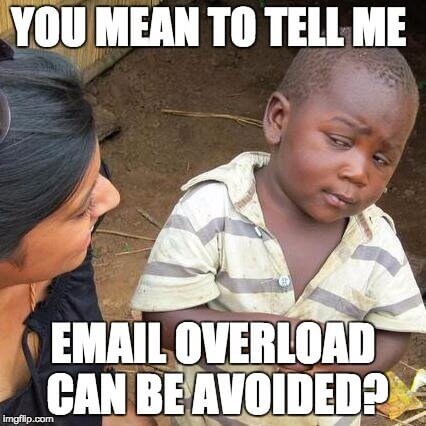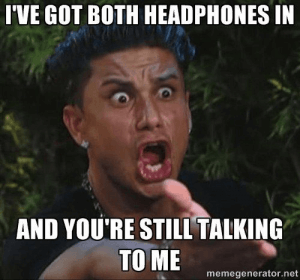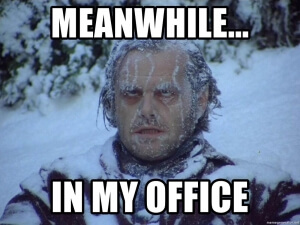How to Stay Productive and Reduce Distraction at Work
In order to grow a business, entrepreneurs need to stay on their toes, keep an eye out for new opportunities, and even put in extra hours. For small and new businesses, in particular, staying focused and improving productivity can make or break a company.
Unfortunately, there are a lot of factors that can slow down productivity. These can range from chatty colleagues to non-essential tasks, causing productivity levels drop throughout the day.
According to a recent Irvine study, interruptions can have serious repercussions. The study showed it takes up to 23 minutes to refocus your efforts and recover from a distraction. Working in distraction-rich environments is a significant problem when it comes to maintaining work efficiency.
Here are some helpful tips for avoiding distraction and staying focused on your most important projects:
Use the 2-Minute Rule
Most of us have a tendency to react to something the moment it comes up, whether it’s a question from a colleague or an email from a client. But letting questions and new tasks interrupt your workflow only make you less productive. They take away your focus from the task at hand.
Still, it can be stressful to not address tasks right away. Small tasks can easily pile up to become a huge weight on your shoulders. This could give you the sense that you’re perpetually playing catch-up at work, making you feel anxious and rushed.
So, what’s the middle ground? How can you know whether to take care of a task now or leave it for later?
The 2-minute rule is a helpful rule of thumb in figuring out where to draw the line. If a task pops up that you can do in two minutes or less, do it; letting that task loom overhead requires more mental exertion than checking it off right away.
On the other hand, if a task requires more than two minutes of your time, add it to your to-do list without taking your focus off the task at hand. The extra line on your to-do list won’t be nearly as burdensome as letting that new task disrupt your current one.
Avoid Email
If you struggle to stay on task, email just might be the culprit. While checking and responding to emails is certainly a productive part of the workday, it also limits productivity when it gets in the way of other important tasks.
To avoid getting distracted by email, keep your inbox closed throughout the day. Select a time of day when you know you’re less productive anyway. Right after lunch or during the late afternoon check and respond to emails. Try not to spend more than a total of one hour reading and answering emails each day. This way, you’ll still be able to respond to important messages but won’t need to worry about email taking time away from more critical tasks.

Another option is to seek alternatives to email that are equally effective but aren’t as time-consuming. Some companies and organizations have minimized email to such an extent that they hardly, if ever, use email at all.
Conduit, for example, stopped using email for all their internal communications and opted for a collaborative task management solution instead. Other companies are forgoing email in favor of messaging platforms like Yammer, Slack, HipChat, or Skype. These tools have customizable settings that allow you to turn notifications on and off as well as silence them when necessary.
Whether you seek alternative methods of communication for your company or set aside a dedicated time period for checking and answering emails each day, reducing the time you spend on email can lead to a massive boost in productivity.
Learn How to Say “No”
Often times, workplace distractions happen when people ask you to pick up an extra responsibility or help them with a new task. When a colleague or business partner asks you for help, it’s difficult to say “no”. It might make you feel like a bad co-worker or even a bad friend.
But knowing where to draw the line isn’t a sign of laziness or negligence. On the contrary, it’s a sign that you know precisely which tasks to prioritize in order to produce the best results. A busy work schedule is full of tradeoffs, and a “yes” to a new task could mean a “no” to something more important.
There are plenty of ways to deny a request without being rude. Make it clear that you’re rejecting the task, not the person who’s asking for help. You can explain that while their project sounds interesting, there are other tasks that need your attention.
Make a Not-to-Do List
Whether we’re sorting out our hobbies, home projects, or work-related tasks, a lot of people make to-do lists for just about everything. We rarely, however, make not-to-do lists.
While not-to-do lists are far less common, they’re even more useful in helping you eliminate distraction. Creating such a list forces you to be very explicit with yourself about what you aren’t allowed to do–whether it’s taking on additional tasks, answering your phone, or checking your social media feeds.
At the end of the day, we’re all limited in our working hours, speed, and capabilities. Due to an increase in workload, we tend to find ourselves adding too much to our to-do list – more than we can actually accomplish. Ultimately, you’ll find yourself with multitudes of tasks piling up on your plate, and not knowing how to begin tackling them.
Keeping a short and concise not-to-do list is the perfect way to prioritize tasks. It will separate the essential tasks for the day from other tasks you can tackle at a later date, increasing the quality of your work.
Make an old-fashioned, pen-and-paper checklist to keep on your desk with a list of the tasks you simply won’t allow yourself to do and use it as a reminder throughout the day. If you’re committed to this list, you’ll find yourself actually managing to accomplish the tasks on your to-do list.
Cut Out the Noise
Are you stuck in a distraction-rich environment at work? Open plan offices may seem like a good idea during the office design stage, but when it comes down to it, they are the ultimate source of distraction for many people.
Noisy colleagues can be a serious issue as you can’t easily control them. You can’t just tell them to be quiet and expect them to do so. You need to find a way to deal with them (without ruining any friendships) to avoid getting irritated and distracted.

Here are some ways you can do it:
- Listen to music or sounds with headphones. This will block out unwelcomed noises and conversations around the office.
- If music in itself is a distraction, try wearing headphones, but don’t actually play any music. Headphones not only block noise, but they can also serve as a deterrent from people bothering you. The bigger headphones, the better!
- Let them know how you feel. There’s nothing wrong in explaining your point of view on noise and behaviors that distract you.
- If your company culture allows for it, work out of office. These days, you can work from anywhere with internet connection. If your colleagues are too noisy to stand, then work from home. You can even find a quiet cafe that’ll block any distractions without a doubt.
Screen Incoming Phone Calls
In this modern age, we’re all glued to our phones – the number one platform for procrastination. So, having our phones on loud and being open to impromptu personal phone calls, is the last thing we should be doing in the middle of the workday.
Remember, you have countless tasks to tackle! An unexpected phone call will not only distract you from the task at hand, but also disregard your priorities. You have no obligation to be immediately available for anyone that calls. So don’t feel guilty and manage your ongoing tasks and workflow at ease by simply setting your phone to ‘do not disturb’ mode.
Getting into this habit will develop your ability to refocus your efforts on what’s important, rather than allowing yourself the opportunity for distractions.
Organize your Uncomfortable Workplace
Whether you’re dealing with back pain from sitting on an uncomfortable chair all day, or you’re unable to focus due to the air conditioning being too cold, external environmental factors can impact your ability to focus and work.

Let’s face it, you’re more likely to work productively when you’re physically and emotionally comfortable.
-
- Maintain a proper room temperature at work, that will relieve humidity but not make you too cold;
-
- Ensure the room is ventilated and fresh air is reaching your workspace;
-
- Make the most out of daylight, and when it starts to get dark adjust the light on your computer;
-
- Find a comfortable chair. You want to maintain support on your lower back to avoid pain and promote good posture;
- Declutter your desk; clutter only prevents you from working efficiently. Having a clean and tidy desk will motivate you to work and guarantee you stay away from distractions.
Stick to a Schedule
Did you notice that as the day goes on, you find yourself on a slippery slope, losing motivation and starting to procrastinate?
Having to deal with a heavy workload may sound fine at first, as it keeps you busy and prevents you from getting bored. However, being overwhelmed by far too much work can lead to burnout.
That’s why it’s important to find ways during the day to avoid losing motivation.
Staying focused all day long is impossible but, taking regular breaks is a great way to refresh your mind and take a step back to refocus.
So, take a break and walk around, stretch your muscles, consume caffeine alternatives such as chocolate (to boost your energy and avoid a caffeine crash). You’ll be surprised the impact taking regular breaks will have on your work productivity and health.
But bear in mind: while it’s important to take regular breaks to boost brain power and avoid procrastination, you also don’t want to take too many breaks. This could cause you to disrupt your workflow. Finding the perfect balance between the two is key to maintaining your focus and energy.
Conclusion
The bottom line is to plan your day strategically, setting aside small blocks of time dedicated to specific tasks while filtering out non-essential tasks. In summary:
-
- Use the 2-minute rule to decide whether you should do a task right now or add it to your to-do list for later;
-
- Limit the time you spend on email. Find alternative methods to communicate internally with your team, and don’t check your email throughout the day;
-
- Practice politely saying “no” to extra tasks that would only take away time and focus from your most important projects;
-
- Create a not-to-do list to make explicit which activities you should avoid altogether;
-
- Cut out any noise, especially from distracting noisy colleagues;
-
- Screen any incoming phone calls. You’re a busy person, so don’t hinder your own productivity by being free for everyone that calls;
-
- Organize your workspace, make sure that you are emotionally and physically happy and your workspace environment isn’t affecting your ability to work;
- Stick to a schedule. It’s important to improve your time management to ensure your motivation and energy don’t decrease throughout the day.
Reducing workplace distraction is an essential ingredient in achieving your business goals as an employee. What are some of your favorite strategies for avoiding distraction at work?
Was this helpful?